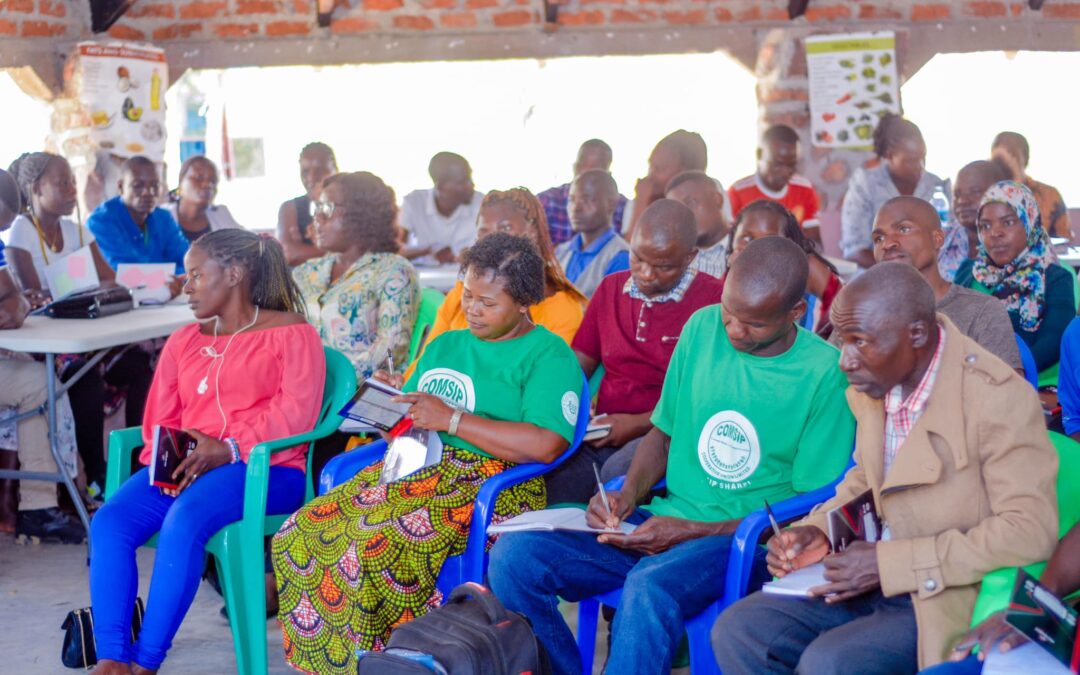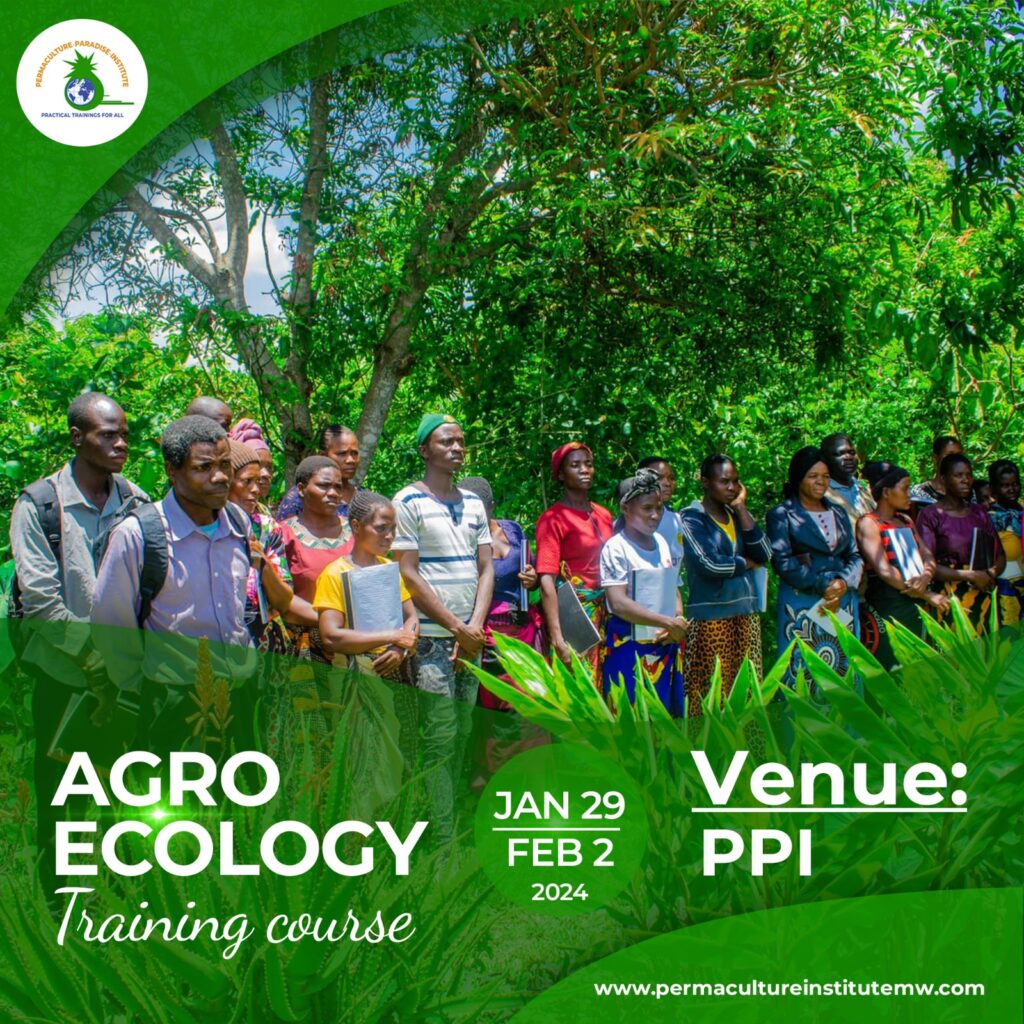This week marks a significant milestone in agricultural education in Malawi, as 88 dedicated farmers, field staff, project coordinators, and government extension workers come together at the renowned Permaculture Paradise Institute for an intensive five-day hands-on Permaculture training course. Participants from northern, central, and southern Malawi are learning the principles of sustainable farming that promise to transform their practices and communities.
The training program is generously sponsored by Community Servings and Investment Promotion (COMSIP), whose mission is to boost wage employment, enhance food security, promote financial inclusion, and empower individuals towards self-employment and market access. Additionally, COMSIP is committed to improving social services, advancing women’s empowerment, promoting environmental management, and enhancing productivity and resilience—objectives that resonate
strongly with the need for sustainable agricultural practices in the face of climate change and population growth.
At the heart of this transformative training lies our practical permaculture design methodologies, which aim to create agro-ecosystems that are ecologically sensitive, economically viable, and socially just. Participants will delve into the core tenets of permaculture, learning about the intricate connections within ecosystems and how to design agricultural systems that work harmoniously with nature.
Through hands-on activities and collaborative learning, the course will equip attendees with the skills to cultivate diverse, sustainable gardens that not only yield healthy produce but also contribute to the resilience of their communities. This initiative is about so much more than farming; it’s about fostering a holistic approach to agriculture that nurtures the environment while uplifting individuals and communities.

“Our goal is to touch as many lives as we can through capacity building for a better Malawi,” said a representative from the training program. “By empowering farmers with knowledge and practical skills, we’re not just improving agricultural productivity—we’re laying the groundwork for long-term economic and social benefits that will uplift entire communities.”

As the week progresses, participants will engage in interactive workshops, learn about soil health, water management, and biodiversity, and explore innovative farming techniques that will help them adapt to the challenges of climate change. The knowledge gained during this training will enable them to create sustainable food systems that not only provide for their families but also promote community well-being and ecological balance.
This initiative exemplifies a visionary approach to agriculture that aligns with contemporary global efforts towards sustainable development. By investing in permaculture education, we are fostering a culture of resilience and innovation that has the potential to transform Malawi’s agricultural landscape.
As we celebrate the dedication of these 88 individuals embarking on their permaculture journey, we also envision a brighter future for Malawi—one where sustainable agriculture leads to food security, economic empowerment, and thriving communities. The impact of this training will extend far beyond these five days, influencing generations to come. Stay tuned for updates as these farmers begin to implement their newfound knowledge and skills in their communities!



